What is dental erosion?
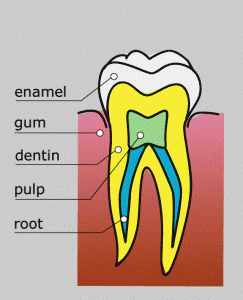 Erosion is the loss of tooth enamel caused by acid attack. Enamel is the hard, protective coating of the tooth, which protects the sensitive dentine underneath. When the enamel is worn away, the dentine underneath is exposed, which may lead to pain and sensitivity.
Erosion is the loss of tooth enamel caused by acid attack. Enamel is the hard, protective coating of the tooth, which protects the sensitive dentine underneath. When the enamel is worn away, the dentine underneath is exposed, which may lead to pain and sensitivity.
Dental erosion, also known as tooth erosion, is the largely preventable yet irreversible damage to tooth structure due from exposure of acids through food or drink, or from sometimes chronic medical conditions that are not dental related. It has only been recently, that tooth erosion has been recognized as a dental health problem despite it being commonly present especially among children and teenagers.
Tooth Wear & Erosion Causes
Most often, tooth erosion is caused by consumption of acidic foods and drinks – typically those which have a ph that is below 5.7. Sodas and other carbonated drinks, including those that are diet or un-caffeinated, are a frequent culprit along with fruit juices, especially those that contain citrus.
With dental erosion, the damage is caused by citric and phosphoric acids.

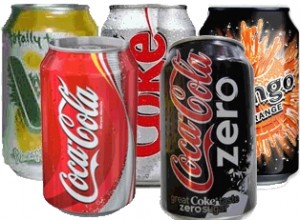
Saliva is designed to act as a buffer that regulates the impact of acidic drinks that have been consumed but some drinks have a resistance to the effect. Research has concluded that fruit juices are the most resistance to saliva benefits.
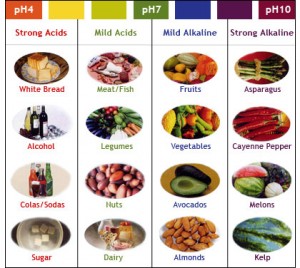 Other drinks include:
Other drinks include:
- Fruit based carbonated drinks
- Flavoured mineral waters
- Other carbonated drinks such as sodas and mineral water
- Some medications such as vitamin c.
Conditions such as acid reflux, heartburn, indigestion and more serious medical problems like anorexia and bulimia can also contribute to tooth erosion.
Symptoms of tooth erosion
- Discolouration – Since the dentine of the tooth is exposed during tooth erosion, discolouration or yellowing of the teeth can occur. The more dentine that is exposed, the more yellow the teeth will become.
- Tooth Sensitivity – Sensitive teeth are very common symptoms of tooth erosion because the enamel that protects the teeth wears away, leaving exposed dentine.
- Rounded teeth – During the early stages of tooth erosion, it is common for teeth to have a rounded look.
- Transparent or sand blasted appearance – It is not uncommon in the early stages of tooth erosion for the teeth to have a sand blasted look or for the tips of the front teeth to look transparent.
- Cracking – If tooth erosion continues into the advanced stage, the edges of the teeth can start to crack and have a rough feeling.
- Dents – Little dents can start to appear on the biting areas on the teeth.
- Extreme sensitivity – The teeth can become extremely sensitive during the advanced stage of tooth erosion.
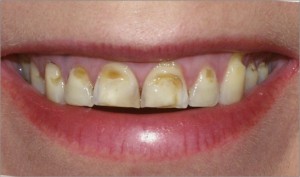
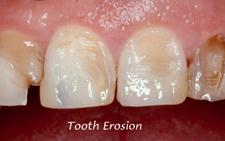
Treatment of tooth wear
Consult a dentist about treatment options to restore enamel. Your treatment will depend on the level of erosion and presence of cavities, and can include crowns, composite fillings or veneers.
- Crowns can be used to cap the teeth and restore them to their original shape.
- Veneers cover eroded, cracked, broken or chipped teeth and help prevent further erosion.
- Composite fillings can be used to repair cavities, which contribute to tooth erosion. These fillings are designed to smooth out surfaces and decrease tooth sensitivity.
How can you protect tooth enamel from erosion?
Good dental care can help prevent tooth enamel from erosion.
- Cut down on acidic drinks and foods, such as carbonated drinks and citrus fruit juices. If you do drink them, do so at meal times to minimise their effects on the enamel.
- Rinse your mouth with water right after having acidic foods or drinks.
- Drink fizzy drinks and fruit juices with a straw which helps acids to bypass the teeth.
- Finish a meal with a glass of milk or a piece of cheese to neutralise acids.
- Chew sugar free gum with xylitol, which helps neutralise acids from foods and drinks.
- Drink more water during the day if you have a dry mouth or low saliva problems.
- Use a soft toothbrush and avoid brushing too vigorously.
- Wait for at least 30 minutes to brush teeth after they have been exposed to acids in foods or drinks. Acid leaves the enamel softened and more prone to erosion during brushing.
Use fluoride toothpaste to strengthen your teeth against decay.
You should have your teeth checked regularly by your dentist to prevent the need for tooth enamel restoration. When dental erosion is caught early, your dentist is able to suggest treatment that may prevent further erosion or tooth decay.
Blue Court Dental Centre in Harrow offers a range of dental hygiene preventive treatments to help you keep your teeth for life.
Dr Nishan Dixit
Latest posts by Dr Nishan Dixit (see all)
- Dr Dixit is the new President of British Academy of Cosmetic Dentistry - 28 May 2020
- Does Invisalign hurt? - 9 March 2020
- How Long Does Invisalign Take? - 27 February 2020

